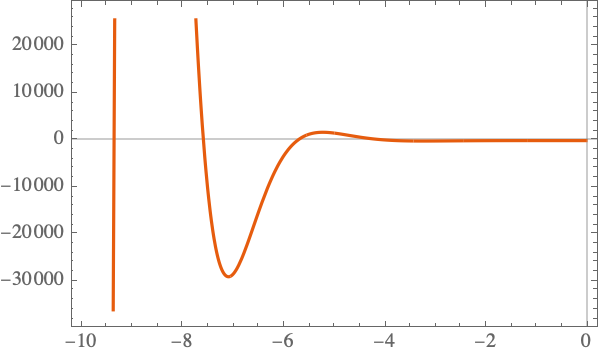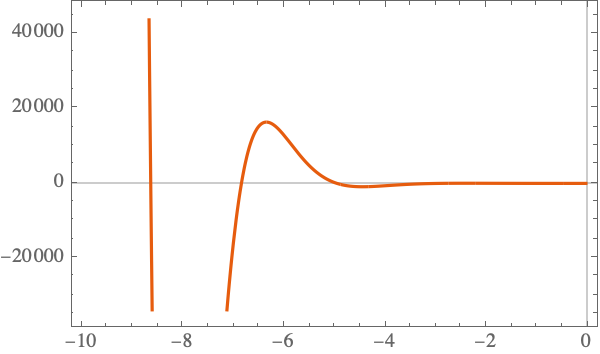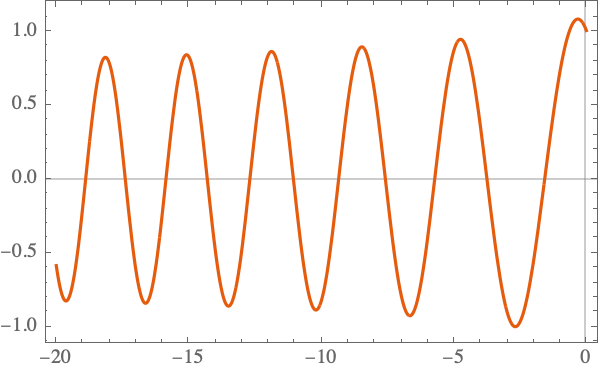This might help you get started. I think this is a variation on a method called Frobenius' method.
The idea is to use the fact that the equation is linear to expand the solution over a set of
basis functions (here B-Splines) and find the corresponding coefficients.
It should provide you with an approximate solution (which you can improve upon
while adding more Splines in your basis),
provided the sought solution is smooth enough and the Kernel
is regular enough.
Let us define some sampling for the sought solution
np = 5; tmin = -5; Δt = -tmin;
kfun[n_, d_] := Join[ConstantArray[0, d], Range[0, 1, 1/(n - d)], ConstantArray[1, d]];
knots = tmin + Δt*kfun[np + 1, 3];
Let us format the unknown $F(t)$ represented by a sum of B-Splines
Format[a[i_]] = Subscript[a, i];
F[t_] = Sum[BSplineBasis[{3, knots}, i, t] a[i], {i, 0, np}]
and define the corresponding basis
Clear[basis];
basis[t_] = Table[BSplineBasis[{3, knots}, i, t], {i, 0, np}]
Let's show the basis just because we can:
Plot[basis[t] // Evaluate, {t, -5, 0}]
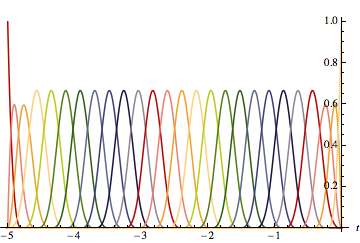
Now your equation is (in terms of F[t]=f[t] EllipticK[t])
eqn = F[t]/EllipticK[t] == Integrate[Exp[2 (t - s)] F[s], {s, tmin, t}] +
Integrate[Exp[(t - s)] f[s], {s, t, 0}]
It involves the convolution kernel
Kern[s_, t_] =
Piecewise[{{Exp[2 (s - t)], s < t}, {Exp[(s - t)], s > t}}]
Now let us define the matrix of dot products of our basis over the kernel K
M =
ParallelTable[NIntegrate[
basis[t][[i + 1]] basis[s][[j + 1]] Kern[s, t], {t, tmin, 0}, {s,
tmin, 0}],
{i, 0,np}, {j, 0,np}]
and the matrix of dot products of our basis (as it is not ortho-normal)
Q = ParallelTable[
NIntegrate[
basis[t][[i + 1]] basis[t][[j + 1]]/EllipticK[t] , {t, tmin, 0}],
{i, 0,np}, {j, 0,np}]
Now let us look at the eigen-space of that equation
{eig, vec} =
Inverse[Q].M - IdentityMatrix[Length[Q]] // Eigensystem;
Our approximate solution is corresponds to the eigenvector with the smallest
eigenvalue:
var = Table[a[i], {i, 0, np}]; ra = Thread[var -> Last[vec]];
Plot[F[t] /EllipticK[t] /. ra // Evaluate, {t, -5, 0}]
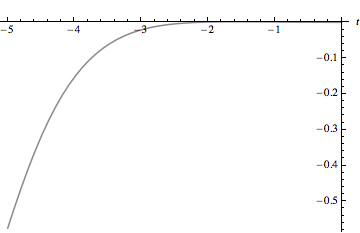
Note that this solution is defined up to a (possibly negative) multiplicative constant.



